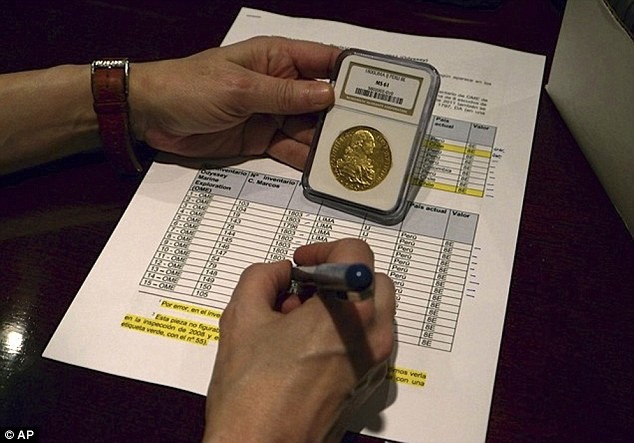Inside Spain s Consolidation Program Yahoo She Philippines
Post on: 15 Апрель, 2015 No Comment

Governments in the eurozone have been giving almost everything the chop these days, but is it achieving the desired results? Near 25% unemployment and the slide back into a recession in Spain do not speak well for such efforts. Will the Rajoy governments attempts at consolidation bear fruit or will the soil continue to lie fallow? The debate on a policy of austerity versus growth will not be resolved anytime soon.
The Reign in Spain
Staggering unemployment, a property glut and negligible growth rates in 2011, projected into 2012, proved too much for the predecessor government of José Luis Rodríguez Zapatero, which called for elections in the latter part of 2011. One of Prime Minister-elect Mariano Rajoys election promises included a broad-based austerity program, as a way for Spain to work its way out of the current morass. Well-intended, it may engender the very consequences that it is trying to prevent.
Key provisions of the consolidation program include the pursuit of fiscal stability to control an increasing budget deficit approaching 9%. Measures include a wage freeze for government employees, provisory income tax increases, expenditure controls at all levels of government and a crackdown on income tax evasion. Additionally, the Spanish government is looking to reduce public deficits, ultimately achieving a budgetary surplus. Further, public debt is to remain below 60% of gross domestic product (GDP).
Austerity measures would appear to stifle potential opportunity for growth. Many now view the long-term refinancing operations (LTRO) — a three year long, low rate capital injection program — to be of limited use to the broader economies of the eurozone, and of greater benefit to the banks that can reduce their funding costs.
Indeed, Spains banks, saddled with property debts from lax underwriting, receive just under a third of European Central Bank (ECB) funding. Germanys emphasis on what the southern eurozone countries perceive as being straitjacketed into a fiscal regimen, appears tinged with a bit of irony, for it was Germany during the Weimar era, that was pushed too hard on war reparations, a fact that John Maynard Keynes made plain in The Economic Consequences Of The Peace .
The eurozone looks to be running out of options. Because the euro is an exercise in monetary, but not fiscal union, it has failed to recognize the very different national and economic characters of its members. A one-size-fits-all, rather than bespoke approach, it assumed economic convergence toward the fiscal and monetary rectitude of the German economy, yet failed to contain an exit strategy, in the event that a member state found compliance unachievable.
In hindsight, many of its members probably wish that the euro experiment never happened. Thirteen years on, in the throes of what is looking like a serial drama, Spain appears to have resigned itself to the fact that a membership in the eurozone may be the better alternative. Exit would be costly. Spains return to the peseta would see that currency sharply devalued. Good for foreign trade, the weak currencys benefit would be offset by the fact that much of Spains (or any other eurozone countrys) obligations would need to be satisfied with a stronger euro. Breaking up would be hard to do, indeed.
Austeritäts Vergnügung (Joyful Austerity)
Well meaning, austerity is proving a hard pill to swallow for Spain. It has no central bank of its own and cannot use monetary policies to its advantage, rather relying on, or being subjugated to, the ECB that speaks for the zone as a whole. Spains external debt is high. Private investors would not welcome a Hellenic tonsorial exercise any more than the ECB or the European Commission would the use of inflation to whittle it away.

With national unemployment nearing 25% and that of its youth close to double that figure, further belt tightening looks to create a virtuous circle. Less government spending on items such as education and research harms long-term growth, as these very items create business and employment opportunities. Cuts in public employment and reductions in pensioners benefits will lead to lower consumption, greater reliance on the social welfare net and yet more problems with mortgages that could harm the banks holding them, yet again. Madrid has had to shore up the bad debts of numerous real estate addled lenders, businesses and consumers that borrowed with abandon during a low rate environment of years past.
The financial markets do not seem to view Spains measures of frugality as prudent, as the countrys cost of borrowing remains at around 6%, a fact reinforced by its continued reliance on central bank largesse to manage its borrowing costs as more bad property debts surface.
The Bottom Line
Finally, one must not lose sight of the fact that though tethered by a single currency, the eurozone nations still conduct trade with one another. Northern European nations with economies that thrive on exports, and which trumpet thrift and fiscal rectitude, would do well to remember that adherence to the latter among its trading partners within the zone could, in short order, damage the former. Teutonic strictures could result in the warrior impaling himself on his own sword. What Germany has mandated to go around, may well come around. Wheres the joy in that?
More From Investopedia














